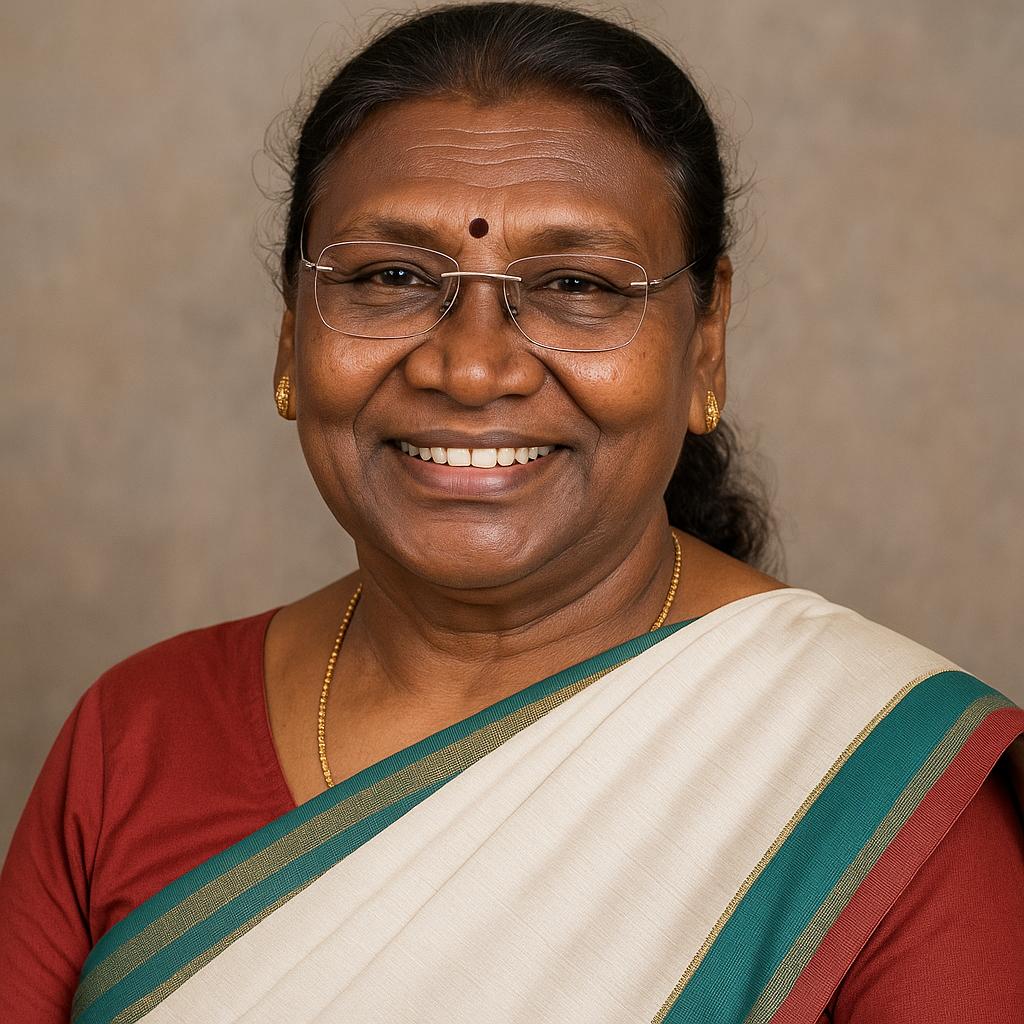




Early Life and Background of Droupadi Murmu
Droupadi Murmu is a notable Indian politician and the 15th President of India. Celebrated as the country’s first tribal and second female president, her inspiring journey from humble beginnings to the highest constitutional post marks her as a symbol of resilience, progress, and representation for marginalized communities.
In this article, we explore her early life, educational background, political career, and lasting legacy.

Early Life of Droupadi Murmu
Droupadi Murmu was born on June 20, 1958, in Uparbeda, a remote village in Mayurbhanj district of Odisha, India. Born into a Santhali tribal family, her early life was shaped by challenging conditions, marked by poverty and limited access to resources in one of India’s most underdeveloped regions.
From an early age, Murmu showed determination in her studies and became the first woman from her village to achieve a university degree. She was deeply influenced by her community’s traditions and the importance of education as a path to empowerment.
Career and Achievements
Droupadi Murmu gained recognition through the following key contributions:
- Became the 15th President of India in July 2022 and the first from a tribal background
- Served as Governor of Jharkhand from 2015 to 2021, the first female tribal governor in a tribal-majority state
- Member of Odisha Legislative Assembly from 2000 to 2009; held various ministerial portfolios including Commerce & Transport, and Fisheries & Animal Resources
- Promoted tribal welfare, education, health, and preservation of indigenous culture
- Received the Pandit Nilakantha Das Best Legislator Award in 2007
Key Events in Droupadi Murmu’s Life
| Year | Event | Significance |
|---|---|---|
| 1958 | Birth | Born in Uparbeda, Odisha, Santhal tribal family |
| 1979 | Joined Odisha Irrigation Department | Began career in public service |
| 1997 | Joined Bharatiya Janata Party (BJP) | Started political journey |
| 2000–2009 | Odisha MLA and Minister | Public leadership and governance roles |
| 2015–2021 | Governor of Jharkhand | First tribal woman governor of the state |
| 2022 | Elected President of India | First tribal and second female president |
Personal Life and Public Image
Droupadi Murmu is widely respected for her simplicity, fortitude, and commitment to social causes. She was married to Shyam Charan Murmu and is a mother who faced profound personal losses, including the passing of her husband and two sons.
Her dignified response to personal hardship has made her an inspirational figure across India. She is admired for promoting inclusive governance and empowering women and tribal communities throughout her career.
Legacy of Droupadi Murmu
Droupadi Murmu continues to influence others through:
- Pioneering representation of tribal communities and women in Indian political leadership
- Inspiration for youth and marginalized groups to pursue education and public service
- Key role in shaping discussions around inclusion, diversity, and grassroots development in India
This biography highlighted the journey and influence of Droupadi Murmu. Her contributions remain vital in the development of Indian democracy, social inclusion, and leadership for future generations.
Learn more about historical and modern-day personalities on Vedantu’s platform.
- For a biography of contemporary Indian leaders, read about Narendra Modi.
- If you want to know about pioneering women in India, explore Indira Gandhi and Mother Teresa.
- For more about Indian presidents with unique journeys, see Dr APJ Abdul Kalam and Dr BR Ambedkar.
- To understand international leadership diversity, discover Barack Obama.
- Find more inspirational biographies at Mahatma Gandhi and Jawaharlal Nehru.
FAQs on Who is Droupadi Murmu? Biography, Education, and Achievements
1. Who is Droupadi Murmu?
2. Why is Droupadi Murmu famous?
3. What political party does Droupadi Murmu belong to?
4. Where was Droupadi Murmu born?
5. Who is Droupadi Murmu's husband?
6. What is Droupadi Murmu’s educational background?
7. What significant contributions has Droupadi Murmu made for India?
8. What is Droupadi Murmu's early life like?
9. What are some of Droupadi Murmu's key achievements before becoming President?
10. What is Droupadi Murmu's legacy as President of India?
11. What is the significance of Droupadi Murmu's election as President?
12. How did Droupadi Murmu's background influence her career?





















